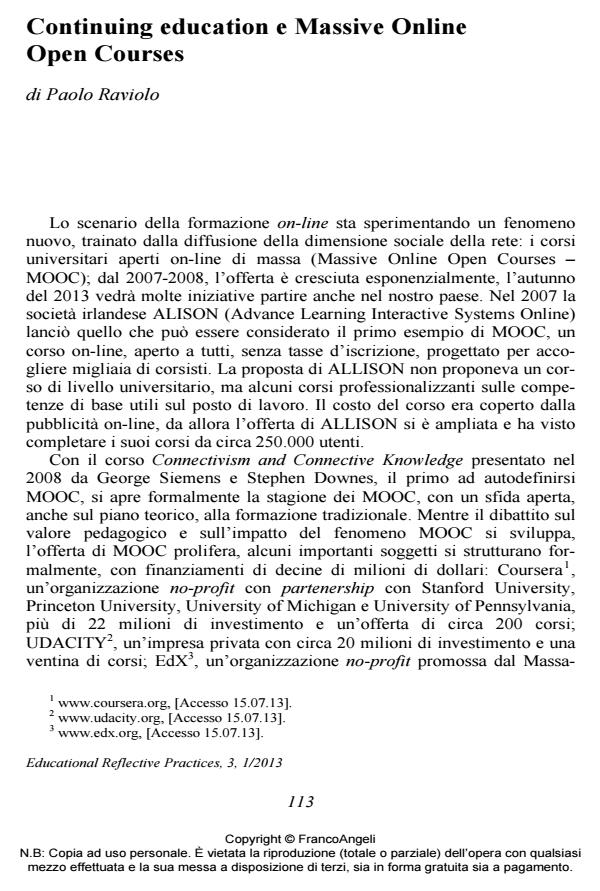Continuing education e Massive Online Open Courses
Titolo Rivista EDUCATIONAL REFLECTIVE PRACTICES
Autori/Curatori Paolo Raviolo
Anno di pubblicazione 2013 Fascicolo 2013/1
Lingua Inglese Numero pagine 5 P. 113-117 Dimensione file 133 KB
DOI 10.3280/ERP2013-001008
Il DOI è il codice a barre della proprietà intellettuale: per saperne di più
clicca qui
Qui sotto puoi vedere in anteprima la prima pagina di questo articolo.
Se questo articolo ti interessa, lo puoi acquistare (e scaricare in formato pdf) seguendo le facili indicazioni per acquistare il download credit. Acquista Download Credits per scaricare questo Articolo in formato PDF

FrancoAngeli è membro della Publishers International Linking Association, Inc (PILA), associazione indipendente e non profit per facilitare (attraverso i servizi tecnologici implementati da CrossRef.org) l’accesso degli studiosi ai contenuti digitali nelle pubblicazioni professionali e scientifiche.
In this short paper we face the fast developing Massive Open Online Courses (MOOC) phenomenon: college courses online, open and free of charge, which are experiencing a tumultuous development over the past two years. We present briefly the debate about the proposed pedagogical models, the key initiatives and the MOOC challenges to the established higher education institution from the point of view of student inclusion, organization and curricula accreditation.
- Emergent Strategy in Higher Education: Postmodern Digital and the Future? Mohamed Ashmel Mohamed Hashim, Issam Tlemsani, Robin Matthews, Rachel Mason-Jones, Vera Ndrecaj, in Administrative Sciences /2022 pp.196
DOI: 10.3390/admsci12040196
Paolo Raviolo, Continuing education e Massive Online Open Courses in "EDUCATIONAL REFLECTIVE PRACTICES" 1/2013, pp 113-117, DOI: 10.3280/ERP2013-001008